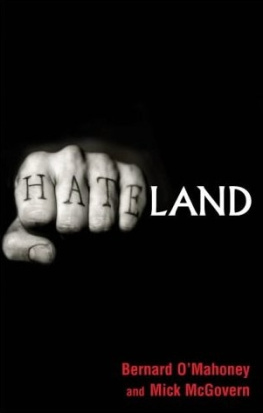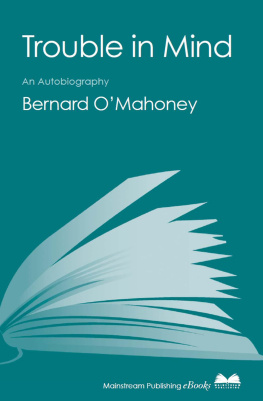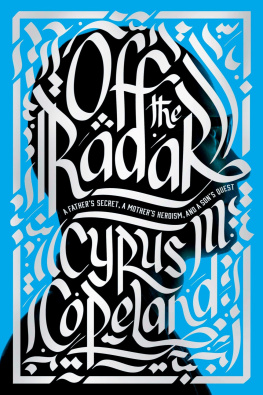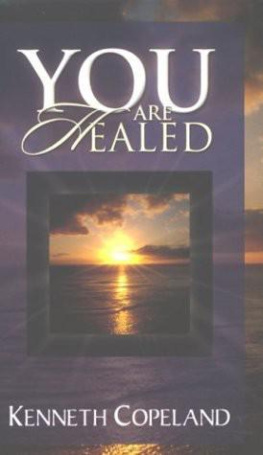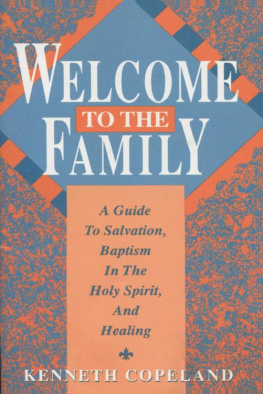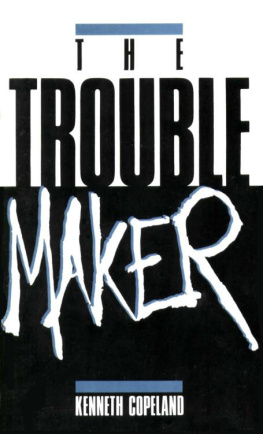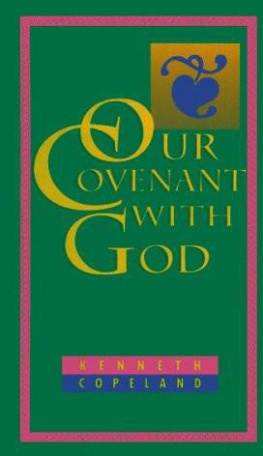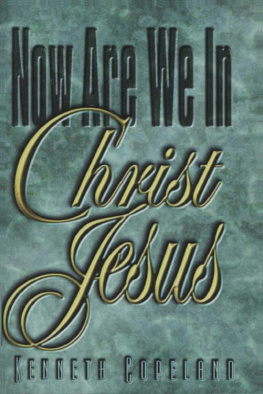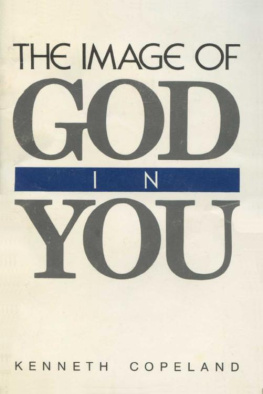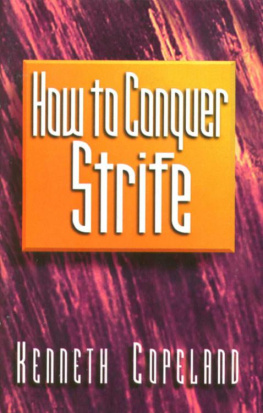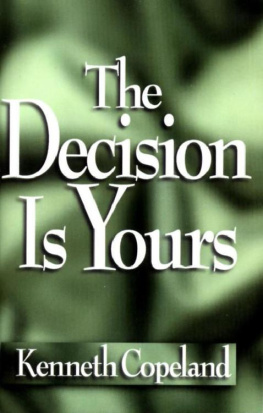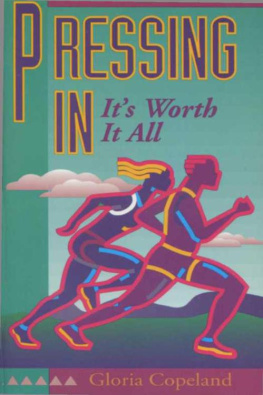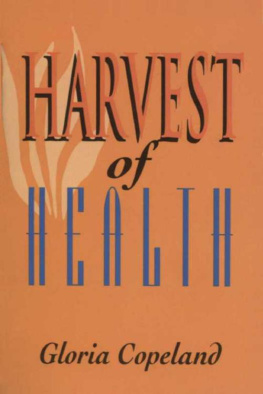The fools, the fools, the green-eyed fools, they could never see what we could see.
From that bench upon that hill, we gazed through innocent eyes at an imaginary ocean that kissed the distant shore beneath the flickering mainland lights. We sat in silence, immersed in our own perfect world, whilst all around us, the real world was forever threatening to destroy us.
Cast asunder by falsehoods and smears, we drifted away into that ocean, tied by memories, torn by pain. But fear not, our friendship cannot die, the fools cannot destroy us.
Someday, we will be reunited by the bond their lies, ill-will and jealousy could not destroy.
ACKNOWLEDGEMENTS
Thanks to The Who for their album Quadrophenia (released 16 November 1973): lyrics that raced around my brain and made me question everything I was ever told; rhythms that tore through my veins as I rampaged through dance-halls and streets; simply great tunes that set me free and made me feel alive!
Special thanks to Ljuba Hantke, Sheila and Frank Proud, Brian and May McGovern, and editor Kevin O'Brien at Mainstream.
Last but by no means least, thanks also to Liverpool's favourite sons, Vinny Bingham and Lenny Higson (Do They Know It's Christmas?), Devon's own Martin 'Whizz Kid' Moore, everyone in sarf London, Glen, Ebony, Lauren, Emma's sister Siobhan, Hughie, 'The Angel of Manchester' Chemane Thomas, Steve and Lyn Daley and family, the Legion clique, Sean and Kerry Riley, Patricia and Paul Scanlon, Michael and Carol, my mother, my children Adrian, Vinney and Karis, Fr. Philip, and the Posh and Deeping boys - you know who you are!
www. bernardomahoney. com
CHAPTER 1
GETTING A GRIP
'Adolf' wanted me to meet 'The Fhrer', so we hopped on a tube to Arnos Grove and looked for a pub full of gardeners. Not real gardeners. Nazis posing as gardeners. In those days, the British National Party (BNP) couldn't use their own name to hire a venue. To book somewhere, even the mouldy upstairs room of a derelict pub, they'd use a pseudonym, like 'The Gardeners' Club' - something I'd always considered somewhat weak.
I used to sneer about it to Adolf. If you believe in something so strongly, why pretend you're someone else? Why the secrecy? Why the deception? If this was the party that was going to march to power and save the Aryan nation from the blacks and the reds and the race traitors, how was the message going to be spread? Preaching to the converted in the locked back-room of a secret location seemed pretty pointless. To me, at least. Not so much to Adolf, who regarded my criticisms as unhelpful, even treacherous, a contemptible flirtation with the forces of ZOG - the Jew-run Zionist Occupation Government, which apparently ruled our land and most of the world.
Adolf traced to my supposed 'northern' roots what he saw as my shallow commitment to the Nazi cause. A south Londoner, he regarded 'northerners' as merely borderline Aryans. He also seemed to think 'the north' began just beyond north London. In fact, I'd been dragged up in Wolverhampton, which geographers, so far as I knew, had always located in the West Midlands.
I'd become friends with Adolf after leaving the army. We were both in our early 20s when we met. He was a friend of my older brother Paul. They had a lot in common - boozing, psychotic violence and Nazism. I could connect with the booze and the violence, but for a long time I remained unsure about what to make of the Nazism. Even at the height of my Nazi involvement, I had little understanding of the politics. Mainly, I just endorsed the far-right's anti-black racism, because I didn't really like blacks and Asians. Of course, I hardly knew any.
I wasn't really politically minded. Since my teens, I'd had a weakness for gang warfare and a desire to be the baddest of the bad. Hanging around with Nazis helped me keep in touch with my real self. They were - so it seemed to me then - the baddest gang on the block.
I'd met Adolf for the first time at the first of Paul's two illegal weddings. He immediately poured scorn on my 'northern' accent, but, perhaps because of our shared council-estate heritage, we got on well. Since then, although Adolf and I had spent quite a lot of time together on and off, I didn't know much about his background. If you asked him what he regarded as a personal question, he'd look at you, disgust forming on his face, and say, 'Are you a homosexual? Are you hoping to sleep with me?'
I assumed he'd had the usual shit childhood, like mine, with some sort of father-figure stomping on his head between bouts of suicide drinking and venomous verbal abuse. But I didn't know for sure. I'd never met his father and he never spoke about him. His mother was a lovely woman. I really liked her. She hadn't held my brother Paul's behaviour against me. Some months after the wedding, Paul had stabbed Adolf in the stomach with a bayonet in front of her in her living room. Adolf recovered but, understandably, his friendship with Paul didn't.
I'd known Adolf for around five years when we set off that evening some time in the late '80s for Arnos Grove in north London to hear a speech by Britain's would-be Fhrer, John Tyndall, leader of the BNP. We headed off from Adolf's flat in Stockwell, south London. I'd often suggested Adolf move away from the area, because the large number of people there from ethnic minorities (not the term Adolf used) incited him constantly to rage. He was the sort of person who wouldn't buy even a packet of mints from an Asian-owned shop ('I ain't putting money in that cunt's pocket'). If he saw a white woman on the street with a pushchair containing a non-white child he'd mutter, 'White-trash slut.' Sometimes on the street, he'd hold out his hands in theatrical despair and say, 'If I could see just one person here with Aryan blood flowing through their veins...'
But his raging could be extremely funny. For Nazis, anyway. He tortured himself with conspiracy theories, making unlikely connections between them and current events. He'd work things out aloud: less stream of consciousness, more stream of fury. He was like a young Alf Garnett (the elderly ranting racist from the '60s television sitcom, Till Death Us Do Part, whose catchphrase was 'The wogs start at Calais').
Adolf was about 5 ft 10 in., not particularly well built, but not a sparrow. Wiry - and wired. When he spoke, it was usually through clenched teeth and flecks of phlegm. The veins on his neck would protrude and pulse, and every other visible muscle would bulge and twitch. He oozed violence.
He wasn't without contradictions. His first serious girlfriend came from Liverpool. This surprised me because, like the original Alf Garnett, he reserved special contempt and loathing for 'Scousers'. He said she was 'all right', because her grandparents had been born in London. On his first trip to Liverpool to meet her parents, he told me - seriously - he'd brought up his own supply of bottled water. He'd wanted to minimise the risk of catching typhoid, cholera and other water-borne diseases he believed rife in that part of 'the Third World'.
'Adolf, of course, wasn't his real name, just the unsubtle nickname he'd earned for his dedication to the National Socialist cause. Unlike most so-called Nazis (including me at the time), Adolf had a good grasp of the ideology and politics of fascism. He could rant for hours (and often did) on the differences between the various Nazi and far-right groupings, as well as on the workings of ZOG. He seemed to know everyone who was anyone in 'the Movement', but he always avoided officially joining any group, largely because of his conviction that spies and informers skulked in all of them.
In 1985, around three years after I'd first met him, Adolf had
almost been blown to bits. In a south London street, which happened to contain the headquarters of the far-left Workers' Revolutionary Party (WRP), a bomb had exploded in the back of a car that Adolf had been travelling in with a fellow Nazi. The bomb had been hidden in a biscuit-tin packed with nails. Adolf hadn't been in the car at the time - he'd just got out to buy a takeaway from a nearby Kentucky Fried Chicken shop - so he escaped with minor burns, unlike the driver, who took the full impact and was badly injured.

